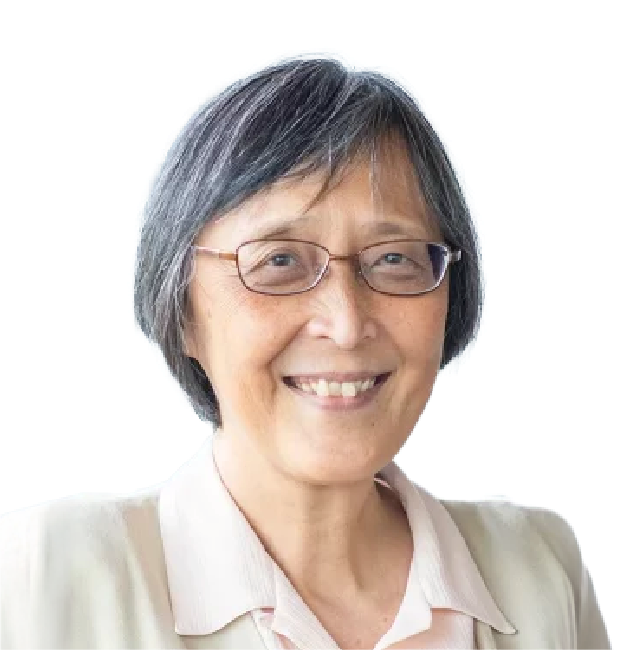
Prof. Jean WOO
Plenary Speaker
Appointment(s)
Henry G Leong Research Professor of Gerontology and Geriatrics,
The Chinese University of Hong Kong,
Hong Kong SAR
Speaker Biography
Professor Jean WOO graduated from Cambridge University in 1974. After medical posts in the Charing Cross, Hammersmith, and Brompton Hospitals, she worked in part-time position in general practice as well as research at the University of Hong Kong. She joined the Department of Medicine at the Chinese University of Hong Kong in 1985 as a Lecturer responsible for the development of the teaching and service in Geriatric Medicine, becoming Head of the Department in 1993 until 1999, Chief of Service of the Medicine and Geriatric Unit at Shatin Hospital from 1993 to 2012, and Chair Professor of Medicine in 1994. From 2000 to 2006 she was Head of the Department of Community and Family Medicine, and from 2001-5 Director of the newly established School of Public Health.
Currently she is Emeritus Professor of Medicine, Henry G Leong Research Professor in Gerontology and Geriatrics, Director of Jockey Club Institute of Ageing and Co-Director of Institute of Health Equity, The Chinese University of Hong Kong. Her research interests include chronic diseases affecting elderly people, health services research, nutrition epidemiology, quality of life issues at the end of life, with over 1000 articles in peer-reviewed indexed journals.
Currently she is Emeritus Professor of Medicine, Henry G Leong Research Professor in Gerontology and Geriatrics, Director of Jockey Club Institute of Ageing and Co-Director of Institute of Health Equity, The Chinese University of Hong Kong. Her research interests include chronic diseases affecting elderly people, health services research, nutrition epidemiology, quality of life issues at the end of life, with over 1000 articles in peer-reviewed indexed journals.
What are the Latest Developments in Geroscience?
Abstract:
Geroscience describes a rapidly growing field of investigation, linking the biology of aging at the cellular level, to clinical manifestations in terms of diseases, cognitive and physical function. Age-related cellular changes are wide-ranging, from genomic expression that may be influenced by environmental factors through DNA methylation for example, to mitochondrial dysfunction, and telomere shortening. These changes have given rise to biomarkers that purport to provide and indication of biological ageing through the estimation of ‘clocks’, represented by the whole field of proteomics, metabolomics, and DNA methylation affecting gene expression. This presentation will highlight some of the recent examples linking these changes with diseases and geriatric syndromes.This growing field of research has led to the use of such biomarkers in risk prediction/diagnosis, as well as in health maintenance. Finally, by targeting specific cellular aging processes, the whole field of gerotherapeutics is emerging. However the same principles applied to pharmacotherapy should apply, in terms of randomized controlled trials, documentation of dose, side effects, efficacy in whatever outcome measures are used, as well as cost benefit analyses.
Geroscience describes a rapidly growing field of investigation, linking the biology of aging at the cellular level, to clinical manifestations in terms of diseases, cognitive and physical function. Age-related cellular changes are wide-ranging, from genomic expression that may be influenced by environmental factors through DNA methylation for example, to mitochondrial dysfunction, and telomere shortening. These changes have given rise to biomarkers that purport to provide and indication of biological ageing through the estimation of ‘clocks’, represented by the whole field of proteomics, metabolomics, and DNA methylation affecting gene expression. This presentation will highlight some of the recent examples linking these changes with diseases and geriatric syndromes.This growing field of research has led to the use of such biomarkers in risk prediction/diagnosis, as well as in health maintenance. Finally, by targeting specific cellular aging processes, the whole field of gerotherapeutics is emerging. However the same principles applied to pharmacotherapy should apply, in terms of randomized controlled trials, documentation of dose, side effects, efficacy in whatever outcome measures are used, as well as cost benefit analyses.
